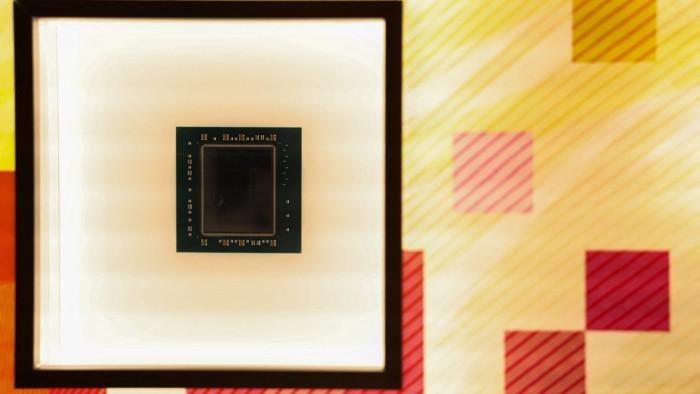Unlock the White House Watch newsletter for free
Your guide to what the 2024 US election means for Washington and the world
The US is imposing expansive export controls on chips used for artificial intelligence in an effort to make it harder for China and other adversaries to get access to advanced technology with military applications.
The Biden administration on Monday unveiled a new export control regime that gives 20 close allies and partners uninhibited access to AI-related chips while placing licensing requirements on most other countries. The move faced immediate pushback from the US semiconductor industry.
The policy aims to make it harder for China to use other countries to circumvent existing US restrictions and get technology that can be used for everything from nuclear weapons modelling to hypersonic missiles.
“The rule both provides greater clarity to our international partners and to industry and counters the serious circumvention and related national security risks posed by countries of concern and malicious actors who may seek to use the advanced American technologies against us,” said US national security adviser Jake Sullivan.
The regime creates a three-tier licensing system for chips used to power data centres that process AI computations. The top tier, which includes G7 members in addition to countries such as Australia, New Zealand, South Korea, Taiwan, the Netherlands and Ireland, will face no restrictions.
The third tier includes nations such as China, Iran, Russia and North Korea to which US groups can, in effect, not export. The middle tier of more than 100 countries will face caps and licences for export volumes over those limits.
Commerce secretary Gina Raimondo said the policy ensured the new controls “do not stifle innovation or US technological leadership”. But it has provoked a furious backlash from the US semiconductor industry.
The Semiconductor Industry Association and the Information Technology and Innovation Foundation issued forceful statements last week saying the policy would only give foreign competitors an advantage over US companies.
Industry sources who spoke on the condition of anonymity slammed the move, calling it an unprecedented step that showed Washington was trying to micromanage the global chip supply chain to the detriment of its allies and its own companies such as Nvidia, AMD, Dell and Supermicro.
“While cloaked in the guise of an ‘anti-China’ measure, these rules would do nothing to enhance US security. The new rules would control technology worldwide, including technology that is already widely available in mainstream gaming PCs and consumer hardware,” Nvidia said in a blog post.
“The new Biden rules would only weaken America’s global competitiveness, undermining the innovation that has kept the US ahead.”
But Jimmy Goodrich, a senior adviser to the Rand Corporation, said the rules were an “important framework” that enhanced national security and did not give Chinese AI companies a competitive advantage over US groups.
“Unchecked offshoring of massive AI data centres to countries with questionable ties to foreign adversaries presents clear national and economic security risks,” said Goodrich. “The framework still allows for millions of chips to continue flowing around the world, and concerns about Chinese competition in AI chips are presently overhyped.”
The industry sources questioned whether the US would be equipped to monitor such an extensive company-specific regime and expressed hope that the Trump administration would roll back the controls. One US official declined to comment on what the Trump administration might do but stressed that “time is really of the essence”.
“We’re in a critical window right now, particularly vis-à-vis China. If you think about where our models are today relative to People’s Republic of China models, the estimates range from being six to 18 months ahead right now, and so every minute counts,” said the official.
One person familiar with the new regime said it was “nothing if not America First”, in a reference to the mantra frequently used by Donald Trump. “The question is whether the new administration can stick to that, or falls victim to a policy of Petro-autocracies First”.
Ted Cruz, the Texas Republican and incoming chair of the Senate commerce committee, last week said the rules would “crush American semiconductor leadership”. He said he was prepared to trigger the Congressional Review Act, which can be used to overturn federal agency actions.
Cruz said they had been “drafted in secrecy without input from Congress or American companies”. But Raimondo said the administration had “taken pains and consulted with industry and civil society and experts on Capitol Hill”.
Source link









